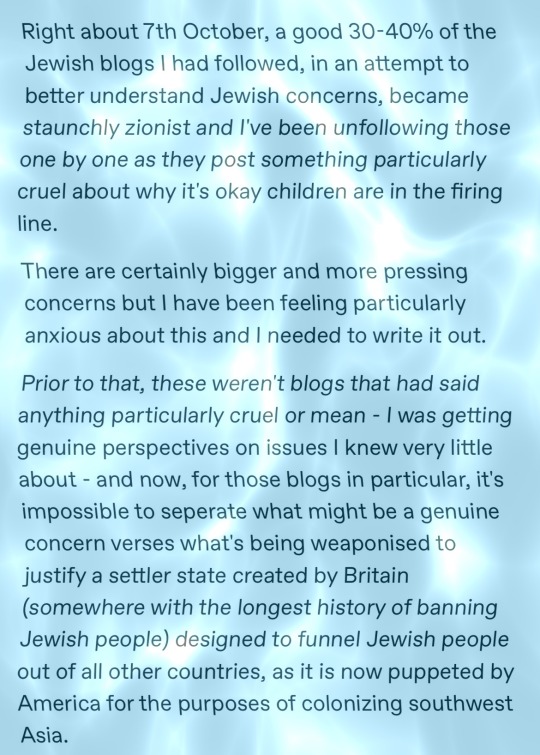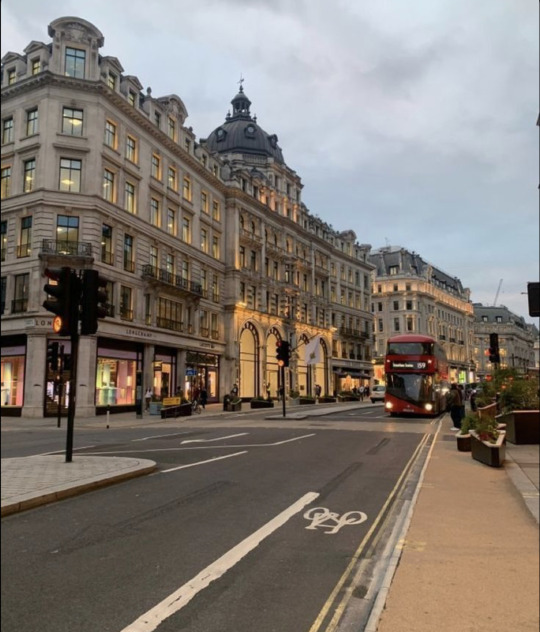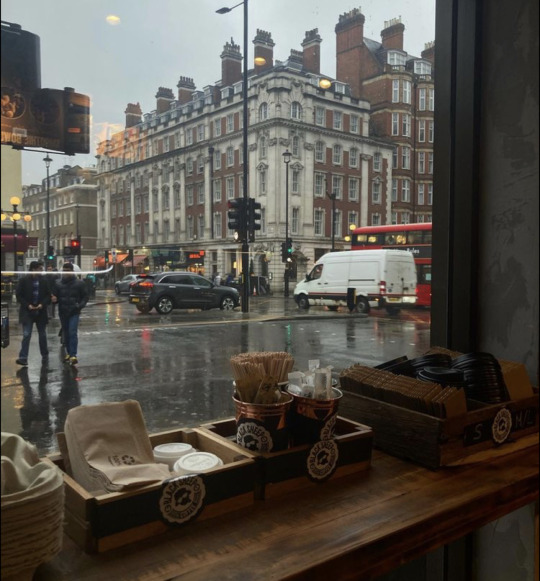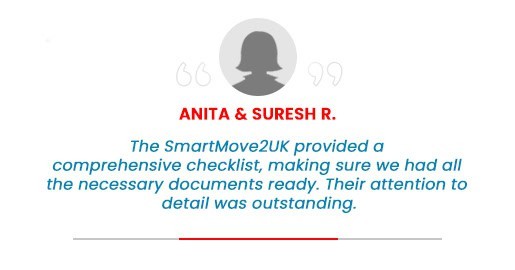#Genuine UK degree provider
Explore tagged Tumblr posts
Text
#Accredited UK degree#Purchase UK diploma#Genuine British degree for sale#Obtain UK accredited certificate#Acquire authentic UK degree#Buy recognized UK diploma#Authentic UK degree online#Accredited British university degree#UK degree without studying#Purchase accredited UK qualification#Obtain British degree legally#Buy UK diploma fast#Genuine UK degree provider#Accredited UK online courses#Buy legal UK certificate#UK degree without exams#Authentic UK university degree#Accredited British diploma#Buy UK degree securely#Genuine UK degree for sale#Purchase accredited British qualification#UK degree without attending classes#Accredited UK distance learning#Buy verifiable UK degree#Genuine UK diploma provider
1 note
·
View note
Text



so this is a trashfire for many reasons.
lack of historical knowledge and complete lack of perspective
israel was not created by britain. israel declared independence from britain. israel was not "designed to funnel jewish people out of all other countries." israel is not "puppeted by america for the purposes of colonizing southwest asia" and the insinuation that israel's goal is to colonize the entirety of southwest asia is actually a documented antisemitic conspiracy theory.

"Even before the State of Israel came into existence, Arab leaders accused Zionists of seeking to rule most of the Middle East," a secret Jewish plot to establish a "Greater Israel" extending from the Nile to the Eurphrates and the Persian Gulf, and south deep into Saudi Arabia. Albeit "farfetched" and a "calumny," this notion has "become so routinized and accepted" that it "now serves as the conventional wisdom in all the Arabic-speaking countries and Iran." Pipes 1998, 49, 69. This is one of two maps in the collection alleged to provide evidence of the "Greater Israel" conspiracy. (The other is ID #2411, "Jewish Imperial Ambitions In Palestine and Neighbouring Countries," 1967.) This map, "Dream of Zionism," shows Zionism as a giant serpent, its back decorated with a pattern of triangles described as "Freemasons Eye, 'Symbol of Jewry.'" The snake's circular outline marks the "Proposed Boundary of 'Greater Israel,'" an area including all of Jordan, Lebanon, Syria, and the Sinai Peninsula; the Nile delta region of Egypt along the Suez Canal and northwest of Cairo; and virtually all of Iraq, including access to the Persian Gulf. It also includes a large portion of northwestern Saudi Arabia, a corridor well over 100 miles wide along the Red Sea, stretching south more than 450 miles from the Gulf of Aqaba to the Holy City of Medina. "Curiously," the conspiracy theorists "see Greater Israel including Medina but not Mecca; the oil fields of Kuwait but not those of Saudi Arabia; and more of Turkey than Iran." The State of Israel is identified as "Occupied Palestine." Pipes 62. This map first appeared in an English-language edition of the fraudulent "Protocols of the Elders of Zion" - the infamous blood libel against the Jewish people - published in Iran in 1985. Ibid. This version appears in a new edition, "Protocols of the Learned Elders of Zion," attributed to "The Representatives of Zion, of the 33rd Degree" and published in Kuwait by the "Scientific Research House." The estimated publication date is 2018. The current version of the map varies only slightly from that of 1985 illustrated in Pipes: the words "Symbol of Jewry" have been added in script beneath the legend "Freemasons Eye," and a partially legible signature ("Mir"?) appears at the lower right.
also i'm not sure what the intention was with bringing up the rwandan genocide because rwanda was colonized by germany and belgium, not the british. unless you think literally everything bad that happens in the world is tied to britain... which just so happens to be another antisemitic conspiracy theory that originated in the ussr. all the while jews were being demonized in the uk for being "communist sympathizers." because jews are the symbol of everything you hate, all the problems in your life. that is how antisemitism functions.
2. tokenizing jews for your own benefit
"i had followed [jewish blogs] in an attempt to better understand jewish concerns ... and i've been unfollowing them one by one ... i was getting genuine perspectives on issues i knew very little about - and now, for those blogs in particular, it's impossible to separate what might be a genuine concern verses wht's being weaponised to justify a settler state"
this is an open admission that you are only able to take in jewish perspectives from jews you agree with. and considering the ignorance that's rampant in the rest of the post, my guess is that what you saw was jews who were scared and angry at the way people acted after october 7th and the way antisemitism is rising, but the non jews you follow were insistent that those sentiments could not coexist with palestinian liberation. additionally, the fact you are unable to separate genuine concern verses "what's being weaponised" is your own problem, not ours. the way jewish pain is being downplayed, mocked, ignored, and demonized, the way people have insisted that any mourning for the victims of october 7th or concern for the hostages must be propaganda is antisemitic. and you are actively contributing to that, particularly by saying that western powers arresting people during protests "has been a setup from the beginning" with the very clear insinuation that it is "zionists" who are to blame for the setup.
3. you are really fucking entitled
you are a british goy (not a "goyim" btw, goy is singular, goyim is plural). you literally admitted that you "don't know how to talk about this with the tat and care [you] should be as a [non jew]" and that "certainly there is a degree in arrogance for [you] to talk about judaism as an outsider." and yet you wrote this whole post full of antisemitic conspiracy theories and antisemitic biases while claiming you know how to protect jewish people and while claiming that zionism is "the biggest danger to jewish people right now."
let us be very fucking clear. the biggest danger to jewish people right now is antisemites and the actions they choose to take, and the consequences of those actions.
you say that "if you tell the general public, who are very susceptible to the broader news cycle, that judaism and zionism is the same thing, they very well will be motivated to do antisemitic things, because they believe they are fighting zionism."
this has already happened and has been happening for decades. framing jews as zionists and demonizing zionism as a jewish ideology is not new. it happened all across swana, even before israel declared independence, including during the farhud which was a pogrom that occurred as part of the holocaust in iraq where jews were executed, beaten, and tens of thousands had to flee from government-sponsored persecution specifically and explicitly targeted at jews under the guise of "antizionism." it also happened in the ussr.
the desire to completely separate judaism from zionism as a jewish ideology is not out of concern for jews. zionism is a jewish ideology founded on one possible solution to global antisemitism, as an attempt to keep jews safe from constant persecution, ethnic cleansing, and genocide. it's not a solution you have to agree with, but trying to completely divorce it from judaism only opens the door for the very people you claim to be concerned about who will use zionism as an excuse to attack jews, as they have been for decades.
i have said it before and i'll say it again. zionism is one of the jewish answers to the question "what do we do with the jews?" historically, the answers gentiles have come up with have been "subjugate them, ethnically cleanse them, slaughter them, genocide them." so when you respond to that question of "what do we do with the jews?" with "i don't really care, but not that! and actually your jewish answer is what's causing this in the first place so really it's your fault!" it's kind of fucking bonkers to expect most jews to respond in any positive way. if you expect to have a productive conversation with zionist jews or with jews as a whole, you must present your own answer to "what do we do with the jews?" and if you're thinking "well how the fuck am i supposed to figure out a plan to get antisemitism all over the world to go away? that’s going to take too long!" you almost understand the point. the eradication of antisemitism is a global effort, and one that won't be achieved in our lifetimes. so the least you can do in the meantime is educate yourself, interact with jews in good faith, listen to jewish perspectives even if you don't agree with them, and realize that you are still going to have only scratched the surface.
so yes, you're right. it was extremely arrogant of you to post this, and you are an example of how ignorance breeds antisemitism among the uneducated masses.
255 notes
·
View notes
Text
An MP has described the “terrifying” moment she believed she was going to die in childbirth as she called on the Government to do more to help women who experience traumatic births.
Conservative MP Theo Clarke (Stafford) received a rare round of applause from the public gallery in the House of Commons from mothers and campaigners as she gave what she described as “probably the most personal speech” she will make in Parliament.
Describing her own experience, she said: “After a difficult 40 hours of labour I began bleeding very heavily after delivery.
“I was separated from my baby and rushed into the emergency room for surgery.
“I remember the trolley bumping into the walls and the medical staff taking me into theatre, and being slid onto the operating table. I spent over two hours awake without a general anaesthetic, and I could hear them talking about me, and obviously it was not looking good.
“It was the most terrifying experience of my life.”
Visibly upset, the MP broke off and took an intervention, before continuing: “I genuinely thought I was going to die.”
The MP was opening what she described as the first debate on birth trauma in the history of the Commons.
She said her own experience “completely opened my eyes to challenges with post-natal care”.
At one point, while in recovery, she said she was lying next to her baby, who was screaming, and unable to pick her up she pressed a call button for help, only for the person to respond by saying “not my baby, not my problem”, before leaving.
The MP said such a moment was “unacceptable”, and said there is a need to address the “postcode lottery” of services available across England.
She described her own birth injury, a third degree tear, which she said occurs in about three in 100 women.
The consequences of an obstetric anal sphincter injury, she said, can include urinary and faecal incontinence, chronic pain, sexual dysfunction and other mental and physical effects, adding: “It is very clear, we must do more to help women.
“We need to break the taboo by talking about this,” she said.
Outlining her requests to the Government, she said: “It is so clear to me that so much more needs to be done to support women who experience traumatic births.
“Today I call for the Government to add birth trauma to the women’s health strategy, recruit more midwives, ensure perinatal mental health services are available across the UK, provide appropriate and mandatory training for midwives with a focus both on mental and physical health, ensure that the post-natal check with your GP is provided to all mothers and will include separate questions both for the mother’s physical health and mental health.”
She also called for an improvement in continuity of care and national post-birth services, for the obstetric and anal sphincter care bundle to be rolled out to all hospital trusts in England, and to provide better support for partners and better education for women on birth choices and risks.
Responding to the debate, health minister Maria Caulfield said: “By early part of next year, every integrated care system in England, and I can’t comment what’s happening in Labour-run Wales, but in England we will have a fully working maternal mental health service to support mothers experiencing moderate, severe or complex mental health difficulties.
“It is true that the number of women accessing perinatal mental health services has risen almost 50% over two years, but that’s actually good news because we want women to come forward, our challenge as a Government in England is to be able to meet that demand.”
On the women’s health strategy, she said: “We will be updating our year-two strategy fairly soon and we’ll be setting out our priorities and I can let members know about that as soon as possible.
“This is a priority for the Government and we are seeing change, but more change needs to happen.”
On Thursday, the Department of Health and Social Care also unveiled plans for how it intends to implement NHS pelvic health clinics across all areas of England – first announced in 2021 – which follows a number of pilot schemes, and which the Government said will provide better information for pregnant women, and improved aftercare.
59 notes
·
View notes
Text
A final-year student of English and Spanish at University of Strathclyde, Glasgow, who asked not to be named, says many students support the lecturers who haven’t marked their work. “One of my lecturers has been on insecure contracts for eight years,” she says. “At the end of each semester she says: ‘I don’t know if I’ll see you again.’”
There hasn’t been a single semester when her degree hasn’t been affected by strikes. “The university has this narrative that it’s all the lecturers’ fault,” she says. “But I think they are ignoring the real problems.”
There isn't really a way out of this that I can see, except through radical reform of higher education. But nobody wants that, because it would mean fewer students going to university and closing some of the 150 UK universities. The universities need more funding to be able to operate at a basic level, to pay lecturers to lecture and research, but there is no way to finance it through further taxpayer-backed student loans. We are a low wage economy, and already some students pay back nothing because their degrees are of such low value that they never earn above the payment threshold. The market is already saturated, with both home and international students, to the point that courses have hundreds of students and academic rigour is diluted to the point of homeopathy. What is the answer besides closing low value universities? Why do we need 150 of them when perhaps 10 or 20 provide education and research with genuine value? But no academic would destroy their own job role. I don't know how this war of attrition will end. How can you graduate without your dissertation being marked? We are moving further and further from objective reality.
25 notes
·
View notes
Text
EXCITING NEWS I NEED TO SHARE WITH MY TUMBLR PALS/FAMILY🤍
You guys are like my family, you’ve constantly been there for me, checking in on me, as well as just providing so much support and love towards not only my work on here but towards me as well and there will never be enough words to thank you all for everything you’ve done for me.
Most of you know I graduate soon, June 14th I’ll be handed my degree, but i’m done April 12th, and i’ll be the first person in my family to graduate university. That has always been something i’ve wanted to do since I was little but always struggled to find my passion until I found Law and fell in love with everything it has to offer.
Another part of my story you all know or recently found out is i’m a survivor of abuse from my stepfather, and neglect from my mother which left me to fend for myself growing up, and looking after my younger brother as well who graduates high school this year and is moving to Germany. I never thought 1. I’d make it to 20 and next month i’ll be 24 and still here, still fighting for myself even if it hurts like hell. Watching my brother grow up to be strong, and resilient like me only helped pushed me to continue on with my journey, because I owed it to him to live my own life after looking after him for basically 18 years now.
It’s still crazy to me that I’m even here writing this news to share with you all because some of you genuinely have been with me through this whether it’s from tiktok or just tumblr.
BUT WITHOUT FURTHER ADUE…
Ive been debating this decision for a while, if you don’t know i’m british canadian, my father lives in the UK and I live in Canada, he moved back when I was little but since then he’s kept in contact with me everyday, and been a parent to me from across the world. I’ve had my eyes set on moving to the UK eventually, specially the London area to practice law and build my career and my life in a new place, a new city and a fresh start which I keep telling myself I deserve. So to stop rambling and being annoying, as I’m currently working on getting my British Passport, since both the UK and Canada recognize dual citizenship; the possibility and opportunity of moving is almost set in stone.
So basically it looks like i’ll be moving to London next year, and I couldn’t be more excited for this new adventure and for the sudden weightless feeling I have…i’ve always fallen behind and lost who I was and it just seems like everything is coming together and I couldn’t be more excited…my neighbours think i’m crazy with all the tears and dancing i’ve been doing all morning🥹😭


#rueschats💗#rueswrites#ruesanswers#ruesvents#ruesreblogs#ruesanons<3#ruesasks#ruesthoughts#little duck au💛🐥#momma x little duck 💛🐥#chris evans x little duck💛🐥#little duck head cannons🐥💛#chris evans#little duck 💛🐥#harry’s angel au🦋❤️🔥#harry’s angel🦋❤️🔥#harry’s angel headcannons🦋❤️🔥#harry styles#i’ve never been more excited in my life#i feel like i finally found who i’m meant to be#just gotta keep telling myself i deserve this because i do#doesn’t even feel real honestly 😭#ruesfriends💛#ruesfriends💙
31 notes
·
View notes
Text






Happy 56th Birthday Scottish entertainer John Barrowman.
Born on 11th March 1967 in Glasgow, where he spent his early years, John moved with his family to Illinois in the United States and later studied Musical Theatre at the US International University in San Diego, California.
In 1989, while in the UK to study Shakespeare as part of his university course, he landed his first professional role starring as Billy Crocker opposite Elaine Paige in the Cole Porter musical Anything Goes. Since then, John’s career as a leading man in musical theatre has seen him star in many West End shows, including Matador, Miss Saigon, Phantom of the Opera and many others.
I myself first came across him in Dr Who and the spin off series Torchwood, where he played Captain Jack Harkness, Barrowman has also appeared in Reign, The Flash and Legends of Tomorrow, more recently he is playing Malcolm Merlyn, Dark Archer in the US Superhero series Arrow. He also appeared in the TV movie Glamorous last year with Brooke Shields. John was also one of the judging panel on ITV’s Dancing on Ice.
Barrowman has worked with gay rights charity Stonewall, Hearing Dogs for Deaf People, New Forest Nightstop, which provides free short-term emergency accommodation for homeless young people aged 16-24 in the homes of trained and approved volunteers around the New Forest and Down’s Syndrome Scotland.
In 2011 John was given a Doctor of Drama honorary degree from the Royal Scottish Academy of Music and Drama
Barrowman has been embroiled in a scandal in the past year with stories coming out that he was a serial flasher in the past, on the set of the likes of Doctor Who, the star is trying to put it all behind him saying, ¬It was tom foolery and it was silly, we had a great time on set it wasn’t sexual harassment, bawdy behaviour could be fun – but these are different times'.
In last years post about John I said he was about to embark on a tour with his show “I Am What I Am”, well poor ticket sales forced him to cancel this, it has been a tough couple of years for the Scots entertainer.
In December Barrowman deleted his Twitter account after a brief row with Eve Myles, his co-star on Torchwood from 2006 to 2011.
The singer, responding to a video of themselves talking about their friendship many years ago, suggested Myles was 'spewing rhetoric'.
The comment was criticised by fans, who told Barrowman that if there was an issue between himself and the actress it should be resolved in private rather than publicly on social media. He has since reactivated his account.
I don't know what the future holds for John Barrowman, there is no doubting his talent, and amid the controversy he has never been charged with any criminal offence, he comes across as a genuine guy and I wish him well for what ever it holds.
33 notes
·
View notes
Note
I hope you don't mind this. I think you said before that you aren't close with your family and that's something that's conscious. I've recently had to distance myself from my family and I don't know how to handle it. I know I'm right but I feel guilty that I can't change their minds and I don't feel like I can talk to anyone about it. They make me ashamed and I wish they weren't like this.
hello anon - it's alright to ask that. you're right, I am estranged from my family to a fairly major degree. I'm not sure what you're referring to although I think I can kind of read between the lines there and I'm not a big hugger but I would be giving you a hug if I could. I'm sorry.
for context: I just about still speak to my (UK) parents, they know where I live, we post each other presents for birthdays and christmas. I last saw them for a few hours in December 2021, I hadn't seen them for three years before that. we talk on the phone a few times a year. so it's not a total cut-off but it is a large amount of distance. there are more complications and I'm not going to get into those because this isn't a therapy session and the internet will just find some way to use it against me but, yeah.
it's difficult. I feel guilty a lot of the time - I know my mum would like me to go and live at theirs partly to help with things but also to be "sorted out" in a slightly threatening re-education level. they don't approve of who I am or my career, so it would be very hard to exist there, even if they genuinely needed me which I don't think they do. I try to remind myself that if they didn't do the things they do, this distance wouldn't exist - I am acutely aware they think the same thing of me, although for me it does not feel like a choice. maybe it does not to them, either but I know a lot more people who have been brought round from homophobia than have stopped being gay.
it helps, now, that I'm old. people my age depend on their parents less because it's the time that you start not being able to assume people's parents are still around. and living in London no one sees their parents really anyway. but I also find it harder the older I get. I don't need anything from them and the few times I've needed help they haven't been the people giving it to me. I suspect that might well be the case for you, too - or that it would only come with terrible conditions.
you don't go to a loan shark for love. if you can't repay the terms of them giving you anything, that's not your fault, that's their conditions.
it will always be a little weird but you probably never had the relationship to them that people thought was normal anyway. it will get better.
move to a city or somewhere everyone's a little distanced, if or when you can. it shows less. find new family, people to provide for. I can't promise it stops haunting you or that the gnawing guilt ever goes away but it gets lighter - and for some people it does totally disappear, I've probably made it harder for myself by not cutting them off.
edited to add: something it's useful for me to remember is that there isn't a me I could be or a career I could have where they would be proud of me. that I could bend myself into any shape imaginable (and tried, before the elastic tension got so great it exploded) and it wouldn't be right. I cannot physically re-form myself and energy meeting resistance only creates stress. it would be better if it was not this way but some circuits are broken and you are not a defective part, just placed in the wrong configuration.
17 notes
·
View notes
Text
What is the duration of the Master’s preparation Programme?

It starts with a dream—one that sneaks up during late-night YouTube rabbit holes, casual chats over chai, or when scrolling past yet another ‘Study in the UK’ success story. The idea of pursuing a master’s degree abroad takes root, and suddenly, the mind is buzzing with questions. One of the biggest? How long does the Master’s Preparation Programme take?
Let’s clear this up without the usual brochure-like, robotic explanation. Picture this: You’ve set your sights on a UK university, but there’s a small hurdle—you need a little extra academic preparation, English language support, or simply a smoother transition into the rigorous world of postgraduate studies. That’s where the Master’s Preparation Programme (MPP) comes in, acting as your academic runway before takeoff. But how long does this journey last?
The Timeline: Not Too Short, Not Too Long—Just Right
Depending on individual needs, the Master’s Preparation Programme typically lasts 6 to 9 months. Think of it like a well-paced training montage from a sports movie—long enough to build confidence but not so long that you start questioning your life choices. It’s structured to provide everything you need, from sharpening academic writing skills to mastering the art of research (because trust me, you’ll be drowning in journal articles soon enough).
For students with stronger academic backgrounds and English proficiency, the 6-month option might be just right. It’s an intensive, focused experience—no time for procrastination or those “I’ll start tomorrow” moments. On the other hand, if you prefer a steadier pace or need extra time to adapt, the 9-month programme allows for deeper learning and gradual skill-building without feeling overwhelmed.
So, What Happens During the Programme?
Imagine stepping into a classroom where lecturers actually expect you to debate, question, and critically analyse everything. It’s a shift from the memorisation-heavy style many students are used to, which is why the MPP is so valuable. Throughout the course, students tackle advanced academic skills, learn research methodologies, and even get a taste of university-style assessments—no last-minute cramming here (okay, maybe just a little).
Beyond academics, the programme helps students navigate the cultural and social aspects of studying in the UK. From learning how to email professors without sounding like a robot to handling group projects with people from five different countries, it’s an essential crash course in surviving and thriving in a postgraduate environment.
The Pathways Advantage: More Than Just a Course
For those thinking, Sounds great, but where do I even begin?—that’s where MIE Pathways comes in. They’re not just about enrolling students into programmes; they genuinely care about guiding students through the entire study-abroad process. From helping choose the right Master’s Preparation Programme to ensuring a smooth transition into top UK universities, MIE Pathways makes sure students are prepared academically, mentally, and logistically. With their support, the daunting idea of studying abroad turns into a well-planned, achievable goal.
The Final Thought: Is It Worth It?
If you’ve ever been in a situation where you thought, I wish I had a little more time to prepare, then you already know the answer. The Master’s Preparation Programme isn’t just about meeting entry requirements—it’s about entering your postgraduate studies with the confidence and skills to excel. Six to nine months might sound like a commitment, but when you step into that master’s programme fully prepared, you’ll realise it was the best investment of your time.
So, if you’re still wondering whether this is the right path, maybe the real question should be: Why wouldn’t you want the best possible start?
0 notes
Text
UK Study Visa and Immigration Consultants in Jalandhar: Your Guide to UK Spouse Visa and Study Visa Solutions
Embarking on a journey to the UK for education or family reunification is an exciting chapter in one's life. Whether you’re pursuing higher education or joining a spouse already residing in the UK, the process of securing the appropriate visa can be overwhelming. At VSS Immigration, located in Jalandhar, we specialize in providing expert guidance and comprehensive services for UK Study Visas, UK Spouse Visas, and related immigration solutions. In this article, we’ll provide insights into theUK Study Visa and Immigration Consultants Jalandhar process, including the option to bring your spouse along, and the UK Spouse Visa services available to you.
UK Study Visa: The Pathway to Education in the UK
The UK is home to some of the world’s most prestigious universities and colleges, making it a prime destination for international students. To study in the UK, obtaining a UK Study Visa is crucial. VSS Immigration is here to guide you through the process, ensuring you meet all requirements and submit the correct documentation for a smooth visa application.
There are different types of UK Study Visas based on the course and institution you choose. A Tier 4 (General) Student Visa is typically required for full-time students, but the process can vary for short courses or postgraduate studies. One of the main requirements is having an offer from a recognized educational institution in the UK and the ability to prove your financial stability to cover tuition fees and living expenses.
UK Study Visa with Spouse: Bringing Your Partner Along
If you're planning to study in the UK and want to bring your spouse with you, the UK allows you to apply for a visa as a dependant. This means that your spouse can accompany you during your studies, and they may be able to work in the UK depending on the type of study visa you hold.
To apply for a dependant visa, your spouse will need to provide supporting documents, including evidence of the relationship and proof of sufficient financial resources to support both of you while living in the UK. VSS Immigration is skilled in navigating these applications, ensuring that your spouse’s visa application is handled efficiently and successfully.
UK Spouse Visa: Joining Your Partner in the UK
If your spouse is a UK citizen or holds indefinite leave to remain (ILR) in the UK, you may be eligible to apply for a UK Spouse Visa. This visa allows married couples or civil partners to live and work in the UK together. The application process requires proving your relationship is genuine and providing financial evidence that the sponsoring partner can support both individuals in the UK without relying on public funds.
The UK Spouse Visa is a great option for those looking to reunite with their partners and start a new life in the UK. At VSS Immigration, we help streamline this process, ensuring all required documentation is submitted correctly and on time.
UK Study Visa with or Without IELTS: Understanding the Language Requirements
Many students wonder if they need to take the IELTS (International English Language Testing System) exam to apply for a UK Study Visa. While some UK institutions may require IELTS as proof of English proficiency, there are other alternatives available. For instance, some universities might accept other English language tests, or students may be exempt if they are from an English-speaking country or have completed a degree in English.
VSS Immigration offers expert advice on how to navigate the language requirements for your UK Study Visa application. Whether you need IELTS or qualify for an exemption, we will help you explore the best options for your situation.
Conclusion
Whether you're seeking a UK Study Visa, a Uk spouse visa, or a combination of both, VSS Immigration in Jalandhar is here to provide expert advice and support throughout the process. Our experienced consultants ensure your visa application is handled with care, offering personalized solutions to help you achieve your dreams of studying or living in the UK. Reach out to VSS Immigration today for professional guidance and assistance with your UK visa application.
0 notes
Text
Your Essential 10-Step Guide to Studying in Ireland
Ireland can be regarded as one of the leading study-abroad attracting countries for the foreign students including Indian one. With impeccable academic standards, stunning scenery and exceptionally friendly people, Ireland is a perfect blend of quality learning environment and exciting student experience. If you are a student aspiring to study in Ireland this article is a ten part formula that once followed makes studying in Ireland very easy.
1. Research Your Program and University
Some of the most known universities in Ireland include ; Trinity College Dublin, University College Dublin and National University of Ireland Galway. First of all, begin with the programs that meet your acadmic and career interests.
Key Areas of Study:
Science and Technology
Business and Management
Medicine and Healthcare
Arts and Humanities
Go to university web sites and read program descriptions and details of faculties and students’ reviews. You may also use rankings and accreditation to make your decision.
Pro Tip: Employability of a candidate may be further improved through the programs that have well established connections with the industries and offer internships.
2. Check Eligibility Requirements
For each of the programs offered in Ireland, there is academic and language requirement which should be met.
Typical Requirements:
Credit for prior learning is a recognized undergraduate degree for master’s programs
A list of colleges attended for undergraduate courses
In first, Second and third year IELTS/TOEFL scores as applicable for those who are learning English as the second language.
Personal Statement or Statement of Purpose (SOP) and Letters of Recommendation (LOR)
Certain programs may also require the candidate to produce GMAT/ GRE scores for MBA / Technical disciplines respectively.
3. Understand the Visa Process
It is mandatory to get an Irish student visa (Stamp 2). Don’t start visa application at the last moment because it will put you under pressure.
Documents Needed:
The acceptance letter that typically, student receives from an Irish university
Original bank statements of employer as well as paypal scans showing the employer has a minimum of €7,000.
Health insurance coverage
Valid passport
Records of academic records, and English language proficiency tests
Make sure your application is provided and complete, missing documents will cause problems.
4. Calculate Your Budget
Overseas education requires considerations of large amount of money. The cost of tuition fees in Ireland is significantly low compared to many other countries including UK and USA not mentioning the cost of living in Ireland.
Estimated Costs:
Tuition Fees: €9,000 - €25,000 per year
Accommodation: €400 - €1,200 per month
Living Expenses: €600 - €1,000 per month
Check out the financial aids to universities and government organizations grant and scholarships which can help you in reducing the cost.
5. Apply for Scholarships and Financial Aid
There are various scholarships granted to the foreign students by Ireland to ensure affordability of education.
Popular Scholarships:
The Government of Ireland invites applications for International Education Scholarshipsemes. IRCHESH Studies Shirt
University-specific scholarships such as the UCD Global Excellence Scholarship
Make sure that the scholarship is still available and within your qualifications scope of application, as well as that the essay conveys your achievements and potential.
6. Secure Accommodation
As for housing most students have university accommodation, however there are many private student accommodations in the form of flats, flats sharing and apartments.
Options:
On-campus: Affordable but temporary; use at the beginning
Off-campus: Gives flexibility; check that the place of the work is close to the transport and some shops.
It is recommendable to use university resources and contacts students have to seek for genuine housing services.
7. Plan Your Travel
Finalising your visa and finding your accommodation is always the first step, the next step is your travel.
Tips:
Anyway, comparing the prices for the flights is always the best option if you want to save money.
If possible, try to reach the GE Focus IN at least one week before your course starts in order to acclimatize.
Hand luggage must contain other important documents such as visa, admission letter or any medical record.
8. Health Insurance and Medical Preparations
All foreign students in Ireland are required to have a health insurance. It provides health care services in such a manner that many people can even if they do not have deep pockets.
Providers:
VHI Healthcare
Irish Life Health
Laya Healthcare
It is recommended always to have a check-up to ensure that there is no breakdown of health when on tour.
9. Understand Work Opportunities
Students on Irish student visas are allowed to work, which is a good opportunity to grab internships and make a little bit of cash on the side.
Key Points:
School nursing occurs 20 hours per week during term time.
40 hours per week and can warrant 40 hours per week during holidays.
Explore internships and work placements as part of your program for hands-on industry exposure.
10. Adjust to Irish Culture and Student Life
Ireland is a friendly country with a welcoming culture to everyone in the society. Take part in university activities and organize yourself into associations, visit historical sites as well as scenic wonders in the country.
Must-Visit Places:
Cliffs of Moher
Dublin Castle
Giant’s Causeway
Another reason is making friends with people living in the area and expanding a professional network can be useful for faster accommodation and creating great memories in general.
Conclusion
Evaluating studying in Ireland students have better prospects in terms of academics, career advancement, and cultural enhancement. Here are 10 tips to help you have a good experience and transition successfully into this terrific country;
Beginning now and let’s go get set to experience a process that is full of potential and positivity. Ireland awaits you!
Are you looking for the best study abroad consultants in Kochi, Kerala
#study abroad#study in uk#study abroad consultants#study in australia#study in germany#study in ireland#study blog
0 notes
Text
Navigating International Travel Document Legalisation in the UK | Apostille and Certification
In an increasingly globalised world, international travel often requires individuals to present a variety of documents that meet specific legal standards. Whether for work, education, business, or personal matters, certain documents must be legalised to be recognised abroad. In the UK, this process is known as document legalisation, and it’s crucial for ensuring that your papers are valid for use in foreign countries. At Apostille and Certification Services, we specialise in providing fast and reliable apostille and certification services, allowing you to meet the legal requirements for international travel document legalisation with ease.
Understanding Document Legalisation
Document legalisation is a formal process that authenticates the signature and seal of a public official or notary on a document, confirming its validity for international use. The legalisation ensures that the document meets the necessary standards and complies with international agreements. Without legalisation, a document may not be recognised by foreign authorities.
The process of legalising a document in the UK is often associated with the term apostille. An apostille is a certificate attached to the document, verifying that it is genuine and meets international legal standards. Apostille and Certification Services help individuals and businesses obtain this certificate in a swift and accurate manner.
The Role of Apostille in International Travel
When travelling internationally, certain documents such as birth certificates, marriage certificates, educational degrees, or business contracts may need to be presented to foreign governments, schools, or organisations. Many countries require that these documents be legalised before they can be accepted as legitimate.
An apostille simplifies this process by providing an official certification that proves the document has been verified by a competent authority. For UK residents, this typically involves having the document authenticated by the Foreign, Commonwealth & Development Office (FCDO), the UK’s government department responsible for issuing apostilles.
At Apostille and Certification Services, we understand that the legalisation process can often feel daunting. Our services streamline this process, ensuring your documents are properly attested and ready for use in any country that is a part of the Hague Convention.
Why Choose Apostille and Certification Services?
Apostille and Certification Services bring over a decade of experience in the document legalisation field. We are registered with the FCDO as a next-day service provider, meaning we can get your apostille processed quickly and accurately. Whether you need legalisation for travel, work, or educational purposes, we provide hassle-free solutions to help you meet all international legal requirements.
Our team’s attention to detail ensures that each document we handle is correctly prepared, attested, and returned within the agreed timeframe. We specialise in offering both apostille and certification services, catering to the needs of individuals, businesses, and institutions across the UK.
The Apostille Process: What You Need to Know
The apostille process in the UK involves several key steps:
Document Preparation: The first step is ensuring that the document is correctly prepared for legalisation. This may involve obtaining a certified copy of the original document or ensuring that the document is signed by an authorised official.
Submission: Once the document is ready, it is submitted to the FCDO for legalisation. If required, the document may first need to be certified by a solicitor or notary public.
Apostille Issuance: The FCDO will verify the authenticity of the document and attach an apostille certificate. This certificate verifies that the document has been properly authenticated by a recognised authority and is valid for use internationally.
Return of Document: After the apostille is issued, the document is returned to the applicant. At Apostille and Certification Services, we ensure that all documents are returned promptly, often the next day, for your convenience.
International Travel and Document Requirements
For those planning to travel internationally, it’s essential to understand which documents require legalisation. The most common documents that need apostille certification for travel include:
Birth and Marriage Certificates: These are frequently required for visa applications, family reunification, or in situations where proof of identity or relationship is necessary.
Educational Qualifications: Many countries require that educational certificates, such as degrees or diplomas, be legalised for use in foreign institutions or for employment purposes.
Business Documents: If you’re conducting business abroad, documents such as company registration papers, contracts, or power of attorney may need to be legalised to be valid overseas.
Adoption Papers and Immigration Documents: For immigration or adoption purposes, documents must often be apostilled to ensure they comply with the legal requirements of the receiving country.
Conclusion
Document legalisation, including apostille services, is essential for ensuring your documents are recognised abroad. Whether you’re travelling for business, work, education, or personal reasons, Apostille and Certification Services provides expert, fast, and reliable legalisation services. Our commitment to accuracy, efficiency, and hassle-free service ensures that your international travel documents meet all necessary legal standards. With over a decade of experience and a next-day service offering, we are dedicated to helping you meet your international legalisation needs with confidence and ease.
0 notes
Text
Why Do You Need Attestation for International Use?
In today’s globalized world, individuals often find themselves in situations where they need to present official documents in foreign countries for various purposes, such as studying, working, getting married, or setting up a business. Whether it's for educational certificates, birth certificates, marriage certificates, or legal documents, one common requirement across many nations is document attestation.
Attestation for international use is a crucial process that validates the authenticity of documents and ensures they are legally recognized in another country. Without proper attestation, these documents may not be accepted by foreign authorities, which can create significant challenges. Here’s why attestation for international use is important and why you should make sure your documents are properly attested when dealing with international matters.
1. Ensures the Authenticity of Your Documents
Attestation is the process of verifying a document’s authenticity by a recognized authority. The authorities involved can be government agencies, embassies, or consulates. When you need to present a document abroad for a visa application, job, or educational purpose, the receiving foreign authority needs to ensure that the document is legitimate. Without attestation, the document may be considered invalid, or worse, fraudulent. The attestation process ensures that your documents are genuine and are issued by the appropriate authorities in your home country.
2. Required for International Travel and Immigration
For individuals applying for visas, work permits, or residence permits, attested documents are often a mandatory requirement. Countries around the world need assurance that the documents provided by applicants are not forged and are in line with local laws and regulations. Documents such as birth certificates, marriage certificates, academic qualifications, and police clearance certificates often require attestation before they are accepted for immigration or travel purposes.
For example, if you are applying for a student visa to study abroad, your academic certificates need to be attested to prove their authenticity. Similarly, if you are seeking employment in another country, your educational credentials, professional documents, and even your identity proof might need attestation for the foreign employers to verify them.
3. Essential for Employment and Work Permits
When moving abroad for employment, foreign employers usually require a number of documents for verification before hiring you. This may include your educational qualifications, work experience certificates, criminal background check, and identity proofs. These documents must be attested to ensure that they are valid and trustworthy.
Moreover, certain countries require the attestation of documents before issuing work permits. For instance, many Gulf countries such as the UAE, Qatar, and Saudi Arabia require document attestation as part of the work visa application process. Employers in these countries will request attested documents to verify your credentials, ensuring you meet the necessary requirements for a work permit.
4. A Necessary Step for Educational Purposes
Educational certificates are another key area where attestation is required. If you are planning to study abroad, many countries require attested copies of your academic certificates, including your high school, undergraduate, or postgraduate degrees. This is particularly important for countries that have stringent educational standards and wish to ensure that incoming students are qualified for their chosen programs.
For instance, if you're applying for a higher education program in the United States, the UK, or Canada, your educational certificates may need to be attested by the relevant authorities before the university or educational institution will accept them as part of your application. This process not only helps verify your qualifications but also ensures that they meet the criteria for admission in foreign universities.
5. Boosts Credibility in International Legal Matters
In addition to personal and professional reasons, document attestation is vital when dealing with legal matters internationally. If you’re involved in legal proceedings in a foreign country, or need to register a marriage, property, or business abroad, attested documents are often required. This includes documents like powers of attorney, contracts, or affidavits.
For instance, if you’re getting married in a foreign country, you will likely need to provide an attested marriage certificate. Similarly, if you want to open a bank account, sign contracts, or invest in foreign property, the government or local institutions may require the attestation of various documents before processing your application.
6. Helps Facilitate International Business Deals
For businesses looking to expand internationally, attested documents are essential for smooth operations. Companies need to ensure that their documents, including incorporation certificates, business licenses, and tax registration documents, are recognized in foreign countries. Without attestation, the legitimacy of these documents could be questioned, leading to delays or even rejections of business applications.
If you are starting a business in a foreign country, you might also need to provide attested documents to establish your credibility. For example, an attested certificate of incorporation is a common requirement when registering a business abroad. Similarly, a tax clearance certificate or other business-related documents may need to be attested to prove your company’s legitimacy and financial soundness.
7. Global Acceptance and Recognition
Attested documents are universally recognized. By ensuring that your documents are attested by the relevant authorities, you guarantee that they are legally acceptable and valid in the country where you need to present them. Whether it's for a visa application, job, or legal process, attestation offers assurance that your documents meet the standards of foreign governments, institutions, and organizations. This helps in avoiding unnecessary delays or complications that may arise due to the non-acceptance of non-attested documents.
8. Streamlined Processes and Reduced Hassle
Having your documents attested saves you time and effort when dealing with international processes. For example, once your documents are attested, you won’t have to worry about re-submitting or verifying them multiple times in different countries or institutions. Attestation provides a one-time solution that allows your documents to be accepted globally. This streamlines your interactions with foreign authorities and minimizes bureaucratic hurdles.
Conclusion
Attestation for international use is an essential process that helps ensure the legality and authenticity of your documents in foreign countries. Whether you are traveling, working, studying, or conducting business abroad, having your documents attested provides the necessary validation required by foreign authorities. Without attestation, your documents may be deemed invalid, which can delay your plans or even prevent you from completing important tasks.
To avoid complications, it’s essential to understand the specific attestation requirements of the country you are dealing with and ensure that your documents are properly attested by the appropriate authorities. By doing so, you pave the way for smoother international dealings and ensure that your documents are globally recognized and accepted.
Contact Us
Company Name: SEPL- Superb Enterprises Pvt. Ltd- Attestation, Apostille, MEA, HRD, UAE Embassy Services
Contact No: +918527270999
Email: [email protected]
Address: 2nd floor, Superb Enterprises, Nehru House, 4, Bahadur Shah Zafar Marg, nr. ITO Metro Station, Bahadur Shah Zafar Marg, Vikram Nagar, New Delhi, Delhi, 110002
Services we offer
Certificate attesttaion Hrd attestation Mea Apostille UAE Embassy Attestation Mofa Attestation
0 notes
Text
CJ current event 5dec24
British slog to euthanasia
Excellent column by Madeleine Kearns
***Even so, [Jamie] Hale—who has a master’s degree in philosophy, politics, and the economics of health—often thinks about how much his life costs the state. “I’m very aware I’m not cost-effective,” he added. “It’s very hard not to be aware you are the kind of financial burden the system is creaking under.” Hale is deeply opposed to the assisted suicide bill that the United Kingdom’s Parliament is voting on this week. On November 29, its members will consider whether to advance a bill legalizing assisted dying for the terminally ill with a prognosis of six months or less. If the bill becomes law, an individual could self-administer a lethal drug prescribed by a physician after two doctors and a judge have signed off on the procedure. The bill legalizes assisted suicide, but not euthanasia, which is when someone else—typically a doctor—is the one to kill the patient. ***
Like many doctors who specialize in end-of-life care, Matthew Doré opposes assisted suicide. The honorary secretary of the Association of Palliative Medicine of Great Britain and Ireland, Doré said it’s common for people coming into a hospice to say, “I want to die, kill me now,” but once they have the holistic support they need, that feeling “just melts away, disappears pretty much completely in almost everyone.” What’s more, assisted suicide does not always lead to a more peaceful death, Doré said. Studies show that complications from the lethal drugs include burning, nausea, vomiting, and regurgitation, severe dehydration, seizures, and regaining consciousness. In Oregon, the annual complication rate is nearly 15 percent, although it’s likely higher given that “patients often ingest the lethal drugs without a healthcare professional present to record complications,” one study reported.
But there is another reason for legalizing assisted suicide: to save money. Once the jewel of the UK, the National Health Service has recently been dogged by staff shortages and strikes. A 2024 report found the UK lagging behind 10 other developed countries on hospital wait times. Only Canada had comparably long wait times, while the U.S. was one of the best-performing countries for timely access to care. Now, many in the UK are advocating for assisted suicide as a cost savings measure. Earlier this month, Telegraph columnist wrote that “assisted dying will leave society financially better off” as well as help “people protect their family wealth.”*** Jamie Hale agrees. “If you are genuinely saying these people are too expensive to keep alive, and for that reason we should be killing them, then you’ve completely crossed the moral Rubicon that can’t be defended,” he said. “That’s just pure eugenics . . . I don’t think it’s even worthy of a response in a civilized society.”***
wow -

just, wowza
***
How are kids getting drugs in lock up? Oh, gee, look at the time.
Denver Post notes

Lookout Mountain Youth Services Center in Golden on Friday, June 14, 2024. (Photo by Hyoung Chang/The Denver Post) At least 7 young people in Colorado detention facilities have been hospitalized this year after overdose-related calls At least seven young people in Colorado youth detention centers were hospitalized following overdose-related emergency calls this year, including three teens who required life-saving naloxone at a Colorado Springs facility on the same day over the summer. The Colorado Department of Human Services declined to provide The Denver Post with any information about overdoses at the state’s youth detention facilities, citing child privacy laws. The department says it doesn’t track the number of overdoses, so The Post surveyed fire departments in cities with youth services centers to compile these figures, Sam Tabachnik reports.
***
Shockingly bad 'bama
*** Sherry Digmon is the co-owner of Atmore News, which covers a town of 13,000 nestled on the Alabama-Florida border. She also serves on the Escambia County School Board. Don Fletcher is the reporter for Atmore News. Cindy Jackson serves with Sherry on the board. And Ashley Fore is the payroll supervisor for the board. In a plot worthy of a John Grisham novel, last year they were all hauled into jail, in some cases strip searched, and had their mugshots aired on the local news. They were all charged with felonies that carried three-year prison sentences. Behind the charges was a scheme by long-time Escambia County District Attorney Stephen Billy to strongarm the school board into renewing the contract of then-School Superintendent Michele McClung. Both Billy and Sheriff Heath Jackson injected themselves into the issue, speaking at local GOP meetings and school board meetings, sending a threatening letter to the board, and insisting that everyone support McClung or face their “wrath.” Billy insisted that opposing McClung was a criminal act, and he reminded the board that he controlled the county’s grand jury.***
***
Must see movie
1) Vote to acquit: 2) if mistrial, DC moves court for grant of immunity.
***
Christopher Wray would have to resign or be fired first.
Pres-elect Trump has nominated Kash Patel to head the FBI. His wiki bio says
After graduating from law school in 2005, Patel worked as a public defender in Florida for eight years, first in the Miami-Dade County public defender's office and later as a federal public defender.[15][16] As a public defender he represented clients charged with felonies including international drug trafficking, murder, firearms violations, and bulk cash smuggling.[16][17] In 2014, Patel was hired as a trial attorney in the United States Department of Justice National Security Division, where he simultaneously served as a legal liaison to the Joint Special Operations Command.[15][17] In 2017, Patel was appointed senior counsel on counterterrorism at the House Intelligence Committee.[15][13][a]
***
***
Understatement of the year: "He said Sabrina was known to 'be a little aggressive and had a temper.'”
***
Another protestor killed at Jan 6?
Rosanne Boyland died?
***
Pres Biden pardoned his kid on Sun. Can Hunter stay clean through 20jan25?
***
Who knew?
Two major state programs to combat illegal cannabis recently sent out news releases lauding their collective seizures of some $544 million worth of illicit weed.*** For example, operations by the state Department of Justice’s Eradication and Prevention of Illicit Cannabis program, or EPIC, have seized about 77,000 cannabis plants in 36 counties this year. Yet, Siskiyou County alone produces an estimated 12 million to 16 million illegal plants per year. Therefore, if EPIC only focused on Siskiyou for a year, it would eradicate just 6% of the estimated local black market, he said. This sentiment was echoed by Kendall, who noted that in Mendocino County’s 35-square-mile Round Valley alone there are an estimated 1 million illegal marijuana plants. “The black market is as big and bad as ever,” he said.***
***
tues
Hunter Biden's pardon means that if he's called as witness at a grand jury or trial, he may not invoke his 5th Amendment right to silence.
BB-


***
Well, she killed someone
A woman who admitted to drinking and who was driving well over twice the speed limit when she smashed into a golf cart, killing a bride who had just got married at a South Carolina beach, was sentenced Monday to 25 years in prison. Jamie Lee Komoroski pleaded guilty at the Charleston County courthouse to reckless homicide, felony DUI causing death and two counts of felony DUI causing great bodily injury before her sentencing.***
Police said Komoroski drank at several bars on April 28, 2023, and was driving 65 mph (105 kph) on a narrow Folly Beach road with a speed limit of 25 mph (40 kph) when she slammed into the golf cart leaving a wedding. Her blood-alcohol level was 0.26%, which is more than three times the legal limit to drive. The 34-year-old bride died still wearing her wedding dress. The groom suffered a brain injury and numerous broken bones. The cart was thrown 100 yards (91 meters) by the crash.***
***
wed
BB-

***
too good reddit not to share

***
Gary Larsen crushing it

***
If you don't like bad drivers on the road...
Aurora police say they’ve towed and impounded at least 193 vehicles under a new “three-strikes” law targeting drivers pulled over without a license, registration or insurance. A majority of Aurora’s City Council signed off on the law in September, with supporters arguing that confiscating the cars of drivers caught without any of the three documents was about protecting others on the road. “I’m a broken-windows kind of person in terms of criminal justice, and I believe that if you don’t get the small stuff, it turns into bigger stuff,” Mayor Mike Coffman said during a Sept. 23 council meeting. “There are a lot of people driving around with expired tags, they don’t have a valid license, and (they) don’t have insurance. And so I hope this sends a strong message.” Police spokesman Joe Moylan wrote in an email that 193 vehicles were towed from Nov. 1 through Dec. 5 under the law, which took effect at the end of October. Defendants have 30 days to bring valid registration and proof of insurance to the impound lot with either a driver’s license or another licensed driver to retrieve their vehicle. They can also hire a tow truck to take it somewhere else as long as they can provide proof that they own the vehicle, City Attorney Pete Schulte told the council.***
***
0 notes
Text
Stunning Wedding Video Styles: Capturing Memories in Unique and Unforgettable Ways
When it comes to weddings, the photos are cherished mementos, but a wedding video brings the event back to life, letting couples relive the sights, sounds, and emotions. Wedding videography has evolved into an art form, offering a range of styles that suit different tastes and personalities. Here’s a look at some stunning wedding video styles that capture every magical moment in unique ways.
Cinematic Storytelling
For couples who want their wedding video to feel like a blockbuster movie, cinematic storytelling is ideal. This style uses professional editing, high-definition cameras, and dramatic shots to create a film-like experience. It often includes music, voiceovers, and sound design to add a layer of emotional depth, making every scene feel profound and memorable.
Documentary Style
This style focuses on authenticity, capturing the day’s events as they naturally unfold. It’s perfect for couples who want a genuine, less-polished approach to their wedding video. Documentaries typically feature interviews with family and friends, candid moments, and raw emotions, resulting in a heartfelt narrative that feels like a personal story.
Vintage and Super 8 Film
For a nostalgic touch, some couples opt for a vintage style, often shot on real Super 8 or digitally emulated film. This style uses muted colors, grainy footage, and soft light to evoke the charm of a bygone era. It’s ideal for romantic, timeless memories that give an air of sophistication and warmth.
Same-Day Edit (SDE)
The Same-Day Edit is perfect for couples who want to share their wedding highlights with guests before the day ends. In this style, videographers capture and edit the footage to create a short, impactful video that showcases the day’s best moments. This type of edit can be shown during the reception, adding a special touch that both surprises and delights everyone in attendance.
Aerial and Drone Shots
Aerial shots taken with drones add a grand, cinematic perspective to wedding videos, capturing breathtaking views of the venue and surroundings. This style is particularly popular for outdoor weddings, providing sweeping visuals that highlight the beauty of natural settings, unique architecture, or scenic landscapes.
Music Video Style
Inspired by music videos, this style brings energy and fun to the wedding video. Couples can pick their favorite songs, and videographers create a video that matches the beat, rhythm, and vibe of the music. This style often includes stylized shots, creative angles, and bold editing techniques, making it a lively, upbeat way to remember the day.
Slow-Motion Highlights
Slow-motion footage can capture the emotional gravity of moments like the first look, kiss, or dance. This style uses slow-motion effects to enhance powerful moments, allowing couples to experience the depth of their emotions in a way that feels almost surreal. It’s perfect for adding elegance and intimacy to any wedding video.
Highlight Reel
A highlight reel captures the best parts of the day in a concise, beautifully edited video. It’s a great option for sharing on social media or with guests who couldn’t attend. This style blends key moments with a creative narrative, giving couples a high-quality, quick look at their big day without a lengthy runtime.
Stop Motion Animation
Stunning Wedding Films UK, stop-motion animation uses a series of still photos to create an animated video. This style is quirky and artistic, offering a fun way to showcase moments like the wedding decor, first dance, or group shots with friends. Couples looking for a non-traditional, whimsical take on their wedding video may find stop motion a perfect fit.
360-Degree Video
For a fully immersive experience, 360-degree videos allow couples to view the day from multiple angles. This style is ideal for tech-savvy couples who want to feel like they’re stepping back into their wedding. Guests who watch a 360-degree video can experience the day from any viewpoint, making it a highly interactive and memorable keepsake.
0 notes
Text
Documents Needed for a UK Spouse Visa Application
When applying for a UK Spouse Visa, you need to provide several key documents to demonstrate your eligibility. The UK Home Office has strict requirements, and submitting the correct documents is essential for a smooth application process. Below is a list of the most important documents you’ll need.
1. Proof of Identity and Nationality
You must provide valid identification documents for both you and your spouse (the UK sponsor). These documents are used to verify your identity and nationality.
Passport: You and your spouse must submit a valid passport or another travel document. Your passport should have at least one blank page for the visa and be valid for the entire duration of your stay in the UK.
National Identity Card: If you are from an EU country or another region where national ID cards are common, you may be asked to provide this as well.
2. Proof of Relationship
One of the most important aspects of the UK Spouse Visa application is proving that you are in a genuine and subsisting relationship. This includes submitting a variety of documents to establish that your marriage or civil partnership is not simply for the purpose of gaining entry to the UK.
Marriage or Civil Partnership Certificate: A legal copy of your marriage or civil partnership certificate is required to confirm that your relationship is legally recognized.
Photos: You can include photographs of your wedding or times spent together with your spouse, particularly those showing you both with family and friends.
Correspondence: Submit copies of communication (letters, emails, messages, etc.) between you and your spouse, proving ongoing contact throughout your relationship.
Joint Financial Documents: Include joint bank accounts, utility bills, or lease agreements to show that you have been living together and managing finances as a couple.
3. Financial Documents
Proving that you meet the financial requirement is crucial for the application. These documents demonstrate that your spouse can support you financially in the UK without needing public funds.
Payslips: Provide payslips from the last 6 months (or up to 12 months in some cases) to show your sponsor’s income.
Bank Statements: Bank statements for the past 6 months (if applicable) showing income and savings.
Tax Returns: If your sponsor is self-employed, tax returns or self-assessment records may be required.
Employment Letters: A letter from your sponsor’s employer confirming their position, salary, and length of employment.
4. Proof of Accommodation
You need to provide evidence that you and your spouse have adequate accommodation in the UK. The Home Office wants to ensure that you will be living in suitable housing once you arrive in the UK.
Tenancy Agreement or Mortgage Statements: These documents demonstrate that you have a place to live together. If you do not own a home, you may submit a letter from someone offering you accommodation (with their permission).
Utility Bills: Bills for services such as electricity, gas, and water, addressed to both you and your spouse, can also be used as evidence of where you will be living.
5. English Language Proficiency
All applicants must meet the English language requirement. You must show that you can understand and speak English to a sufficient level for daily communication and integration in the UK.
English Language Test Certificate: If you’re required to take a language test, submit the certificate from a Home Office-approved test provider showing that you meet the required CEFR level.
Educational Documents: If you have completed a degree or other educational qualifications in English, provide official transcripts or certificates from the institution confirming the language of instruction.
6. Tuberculosis (TB) Test Results
Applicants from certain countries are required to submit a TB test certificate as part of the application process. This is necessary for applicants from countries where TB is common.
TB Test Certificate: If you are from one of the specified countries, you must undergo a test at an approved clinic and submit the results with your application.
7. Immigration Documents
You must provide evidence of your current immigration status if you are applying from inside the UK or have previously been in the UK on a different visa.
Visa or Immigration Documents: If you are already in the UK on a different visa, provide a copy of your current visa or leave to remain status. If applying from outside the UK, no previous immigration documents are required.
8. Passport-sized Photos
You will need to provide two recent passport-sized photographs as part of your application. Ensure that these photos meet the specifications outlined by the UK Home Office.
9. Criminal Record Certificate (if applicable)
If you have lived in a country other than your home country for more than 12 months within the last 10 years, you may be required to provide a criminal record certificate from that country. This is part of the Home Office’s assessment of your character and history.
Police Certificates: If required, submit a police certificate or criminal record check from the country where you have resided for a significant period.
10. Biometric Information
All applicants for a UK Spouse Visa must submit biometric information as part of the application process.
Biometrics Appointment: You will be asked to attend a biometric appointment to provide your fingerprints and a digital photograph. This is done to confirm your identity and check for any criminal history.
Conclusion
The UK Spouse Visa application requires a comprehensive set of documents to demonstrate your eligibility. Ensure you gather all necessary paperwork before submitting your application, as incomplete applications may result in delays or refusals. Double-check the requirements for your specific country of residence, as they may vary depending on your location. Submitting the correct documents will significantly improve your chances of a successful visa application.
Visit: https://asherandtomar.co.uk/
0 notes
Text
Your Partner in the UK: A Guide to the UK Spouse Visa

What is a UK Spouse Visa?
A UK Spouse Visa, also known as a Partner Visa, allows non-UK residents to live with their British spouse or civil partner in the United Kingdom. This visa allows you to live in the UK and provides the opportunity to work, study, and eventually apply for Indefinite Leave to Remain (ILR) and, ultimately, British citizenship.
The Spouse Visa is granted for an initial period of 33 months if applied for from outside the UK and 30 months if applied for from within.
Do you need any assistance with your UK Spouse visa /UK Partner visa, UK unmarried partner visa, UK civil visa? The SmartMove2UK’s UK Spouse Visa Consultants are here to help you for your successful UK spouse visa application.
Who is eligible to apply for a UK Spouse Visa?
To apply for a UK Spouse Visa, you must meet several eligibility criteria:
Relationship Status:
You must be legally married to or in a civil partnership with a British citizen or someone with indefinite leave to remain in the UK.
Age Requirement:
Both you and your partner must be at least 18 years old.
Genuine Relationship:
You must provide evidence that your relationship is genuine and subsisting.
Financial Stability:
Your partner must meet the financial threshold required to support you without accessing public funds.
English Language Proficiency:
You must demonstrate that you can speak and understand English to the required level.
Accommodation:
You must have adequate accommodation in the UK where you and your partner can live together.
This visa is not available to unmarried partners unless they can prove they have been living together in a relationship akin to marriage for at least two years. Additionally, the visa does not cover short-term stays or visits.
Check our Complete Guide to the eligibility requirement for UK spouse visa!
Detailed Eligibility Requirements for UK spouse visa
Genuine Relationship Requirement:
You must prove that your relationship with your partner is genuine and subsisting.
This can include providing a marriage or civil partnership certificate, proof of joint financial commitments, communication records, photos and videos, and travel history.
Financial Requirement:
Your sponsoring partner must demonstrate that they can financially support you without relying on public funds. The minimum income threshold is currently £29,000 per year (for entry clearance applications after April 2024).
You can meet the financial requirement through various sources, including employment income, savings, pension income, and rental income.
Accommodation Requirement:
You need adequate accommodation in the UK where you and your partner can live without needing public housing.
The accommodation can be owned, rented, or provided by a family member but must have sufficient space, be safe and suitable, and you must provide proof of ownership or rental.
English Language Requirement:
You must prove that you can speak and understand English. This is typically done by passing an approved English language test, such as the IELTS Life Skills or the Trinity College London Secure English Language Test (SELT).
Exemptions apply if you are a national of a majority English-speaking country, hold a degree taught in English, or have specific disabilities.
Required Documents for a UK Spouse Visa Application:

When preparing your application, gathering the correct documents is vital.
These documents serve as proof of your eligibility and the genuineness of your relationship.
You will need:
Proof of Relationship
Financial Documents
Accommodation Evidence
Additional Supporting Documents, such as passports, previous marriage divorce certificates, and criminal record certificate.

Watch our video on Preparing Financial Documents for UK Spouse Visa by The SmartMove2UK
How to Apply for a UK Spouse Visa:

The application process involves several steps, each of which must be completed carefully to avoid delays or refusals.
Complete the online application form.
Pay the application fee.
Submit supporting documents.
Attend a biometric appointment to provide fingerprints and photographs.
Await a decision.
What Happens If Your Application Is Refused?
If your application is refused, you should understand the reasons for the refusal and your options for appeal. Common reasons for refusal include insufficient financial evidence, incomplete documentation, and doubts about the genuineness of your relationship. You may have the right to appeal the decision.
Read our Guide – on what to do next if your UK Spouse visa is refused
Life After Obtaining a UK Spouse Visa:
Once you have your Spouse Visa, it is important to understand your rights and responsibilities. You have the right to work and study in the UK, but you cannot claim benefits or public funds.
You must also live with your partner in the UK. After five years on a Spouse Visa, you can apply for ILR, and once you have ILR, you may be eligible to apply for British citizenship after a further 12 months.
Specialist UK Immigration Advisor
The benefits of using a specialist UK Spouse Visa consultant like The SmartMove2UK to help with your application.
They provide tailored advice, can handle complications, act as a liaison with the Home Office, assist with appeals and reapplications, and offer peace of mind.
Important Note:
UK immigration rules are subject to change. You should always check the latest guidance on the UK government website or consult with an immigration advisor for the most up-to-date information.
0 notes